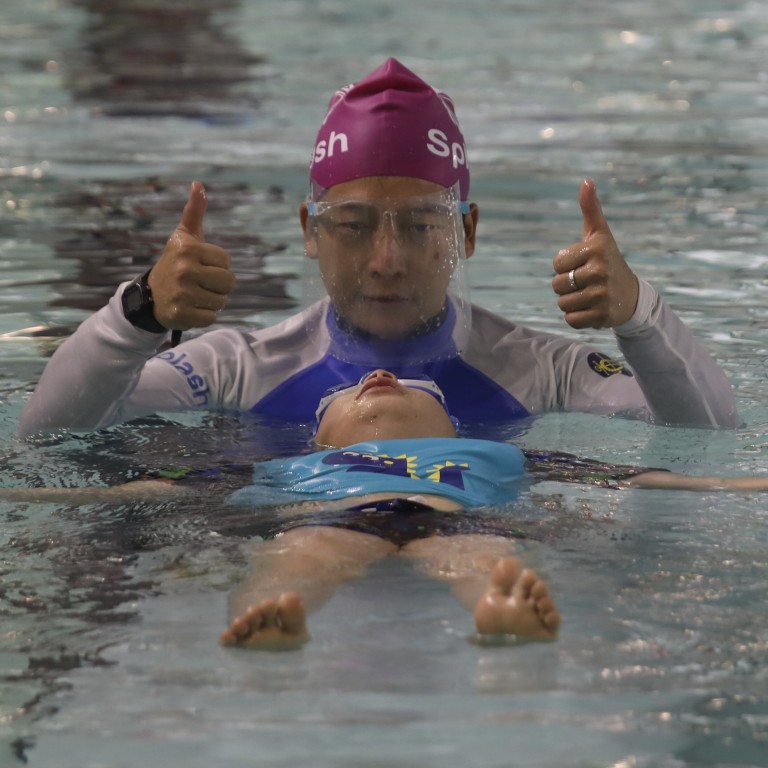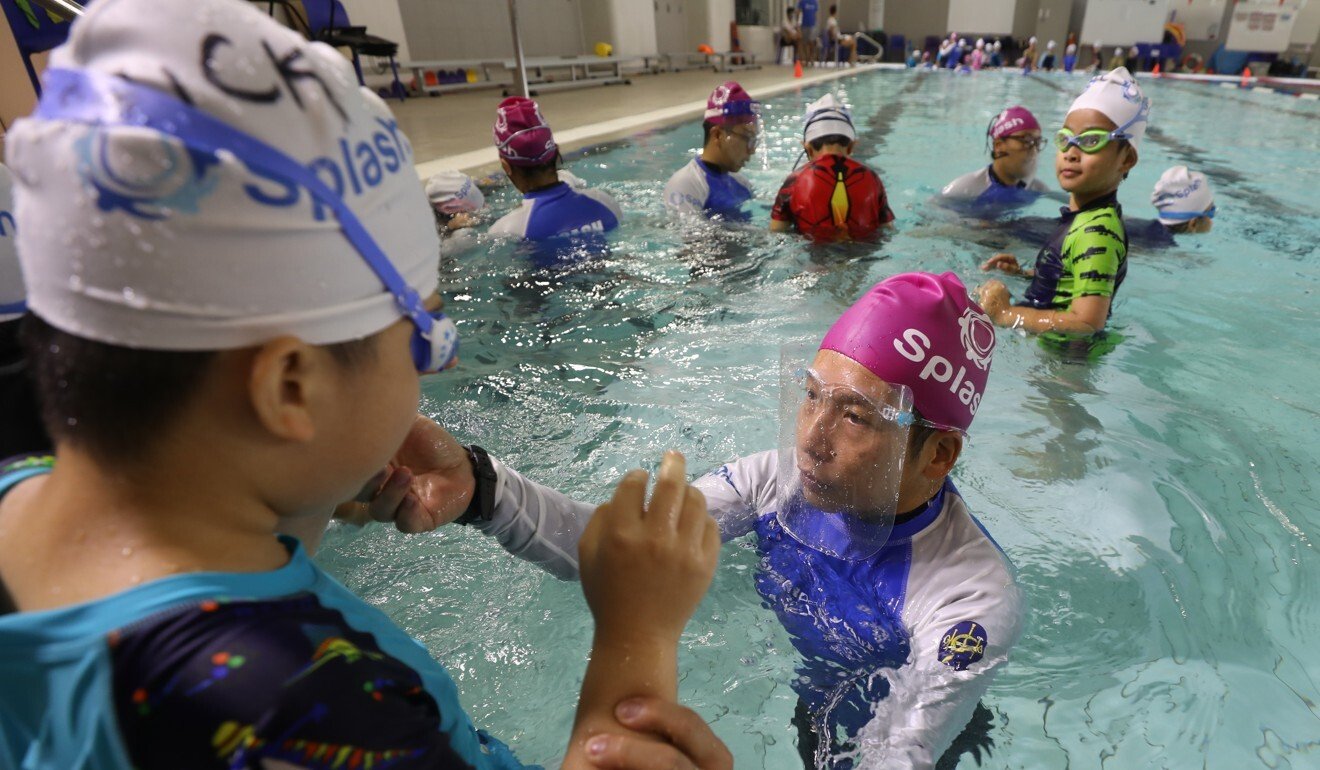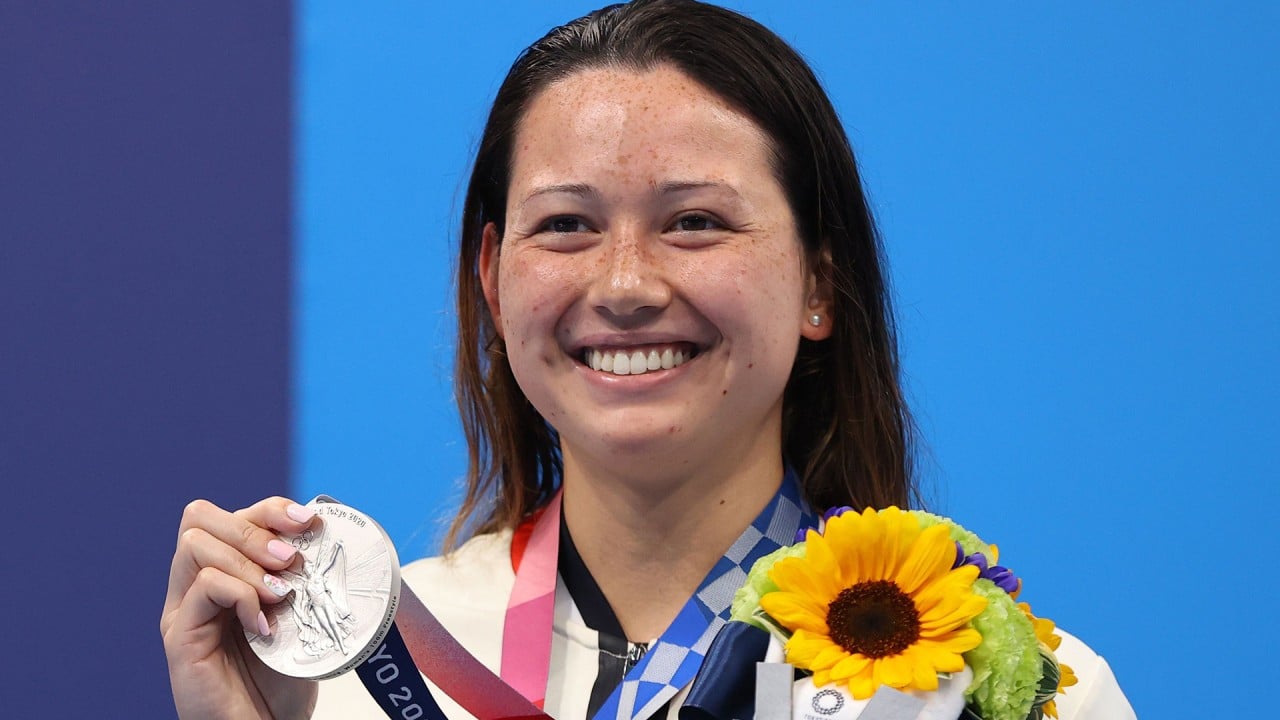
Hong Kong swim school helps kids with disabilities and low income families jump in at the deep end
- Splash Foundation’s goal is to help underprivileged demographics of Hong Kong society overcome their fears of water by learning to swim
- One class focuses on kids with disabilities and special education needs, the Splash Jockey Club SwimABLE programme
For Ricky, clad in his swim goggles and a wet suit with a huge smile on his face, everything boils down to one statement: “I feel happier in the water,” said the 11-year-old who just finished his 20th swim lesson. “I like that I can do a back float, it makes me feel very proud.”
So far Splash has worked with more than 155 children with disabilities through its Splash Jockey Club SwimABLE Programme, part of the broader foundation that also includes foreign domestic workers and kids from low income families. Ricky’s mother Amy, who was watching her son swim at Kellett School, an international school in Kowloon Bay, said her son has blossomed under the guidance and care of the foundation’s coaches.
Amy said she has noticed a drastic change in her son since he started attending the swimming sessions.

“He was initially kind of scared and reluctant to get into the water,” said Amy. “But gradually his coaches felt like his fathers, so the care and attention he got from the coaches was nice and he felt safe and confident enough to be in the water.”
The World Health Organization estimates that more than 320,000 people lose their lives to drowning every year, and almost 60 per cent of these deaths occur among those under 30. Drowning is the third leading cause of death for children aged five to 14, and 90 per cent of those cases take place in low- and middle-income countries, half of them in the Western Pacific and Southeast Asian countries.

06:07
Hong Kong swimmer Siobhan Haughey on the Tokyo Olympics, her historic silvers and future plans
Hong Kong has a staggeringly high rate of secondary school students who do not know how to swim, estimated at around 47 per cent of the population according to a study published in the Asian Journal of Physical Education & Recreation. Simon Holliday, the co-founder of Splash, said more than 3,276 kids and adults have completed their learn to swim programme since it launched in 2015, and they take pride in equipping students with a life skill that could save their lives one day.
“A lot of these kids have never been in a body of water before, so at the start it’s about getting them familiar with a new environment – so the sights and sounds and feel of the water. And when it comes to knowing how to swim, this is problem that doesn’t seem to be getting better as the next generation in Hong Kong comes through.”
Splash’s programme manager Eunice Cheung said when it comes to the classes, whether its foreign domestic workers or kids with special education needs, they make sure they are well researched and prepared on how to handle each attendee specifically.
“We know that a lot of them come with a lot of different emotions, so the idea is to create a very calm environment,” Cheung said. “The biggest thing is our coaches, they are all very well experienced and some of them have 20 years’ experience teaching kids in swimming, so they know how to maintain the kids in the optimal arousal level and not get them too hyper, or not active enough.”

Cheung said one of the biggest issues they have is access to pools in Hong Kong to run their programmes. Holliday said this is perplexing for them given what they do, and the fact that the city has 44 public swimming pools and hundreds of private ones in schools, recreational clubs and private buildings.
“It’s sad that our biggest issue isn’t funding but just access to pools.”
One of the staples of teaching people how to swim is how to remain relaxed in the water, which is why Cheung said they focus on a few specific moves as the fundamentals of the programme.
“We teach a lot of floating, like the back float and the front float so they get used to being calm in the water. And the parents say after the classes, it’s helped to calm their kids as well in relation to their daily activities, so we can see that swimming can bring benefit to their regular lives.”
Amy said learning to swim has also made Ricky a better person outside the pool.
“He likes to do the back float because he feels very relaxed when he’s floating in the water with no gravity. He always shares anything that is fun in his swim class with his friends and school, and with his family at home. He is always looking forward to his next swimming class.”
For Ricky, it’s even simpler for him to express what being able to swim means.
“I could not swim before this, and now I am very proud that I can swim.”

